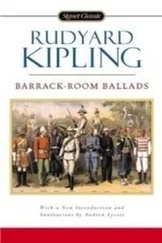Джозеф Киплинг - From Sea to Sea
Здесь есть возможность читать онлайн «Джозеф Киплинг - From Sea to Sea» весь текст электронной книги совершенно бесплатно (целиком полную версию без сокращений). В некоторых случаях можно слушать аудио, скачать через торрент в формате fb2 и присутствует краткое содержание. Год выпуска: 2014, Издательство: epubBooks Classics, Жанр: Биографии и Мемуары, Публицистика, на английском языке. Описание произведения, (предисловие) а так же отзывы посетителей доступны на портале библиотеки ЛибКат.
- Название:From Sea to Sea
- Автор:
- Издательство:epubBooks Classics
- Жанр:
- Год:2014
- ISBN:нет данных
- Рейтинг книги:3 / 5. Голосов: 1
-
Избранное:Добавить в избранное
- Отзывы:
-
Ваша оценка:
- 60
- 1
- 2
- 3
- 4
- 5
From Sea to Sea: краткое содержание, описание и аннотация
Предлагаем к чтению аннотацию, описание, краткое содержание или предисловие (зависит от того, что написал сам автор книги «From Sea to Sea»). Если вы не нашли необходимую информацию о книге — напишите в комментариях, мы постараемся отыскать её.
From Sea to Sea — читать онлайн бесплатно полную книгу (весь текст) целиком
Ниже представлен текст книги, разбитый по страницам. Система сохранения места последней прочитанной страницы, позволяет с удобством читать онлайн бесплатно книгу «From Sea to Sea», без необходимости каждый раз заново искать на чём Вы остановились. Поставьте закладку, и сможете в любой момент перейти на страницу, на которой закончили чтение.
Интервал:
Закладка:
So the Englishman went into this palace built of stone, bedded on stone, springing out of scarped rock, and reached by stone ways—nothing but stone. Presently, he stumbled across a little temple of Kali, a gem of marble tracery and inlay, very dark and, at that hour of the morning, very cold.
If, as Viollet–le–Duc tells us to believe, a building reflects the character of its inhabitants, it must be impossible for one reared in an Eastern palace to think straightly or speak freely or—but here the annals of Rajputana contradict the theory—to act openly. The cramped and darkened rooms, the narrow smooth–walled passages with recesses where a man might wait for his enemy unseen, the maze of ascending and descending stairs leading nowhither, the ever–present screens of marble tracery that may hide or reveal so much,—all these things breathe of plot and counter–plot, league and intrigue. In a living palace where the sightseer knows and feels that there are human beings everywhere, and that he is followed by scores of unseen eyes, the impression is almost unendurable. In a dead palace—a cemetery of loves and hatreds done with hundreds of years ago, and of plottings that had for their end, though the greybeards who plotted knew it not, the coming of the British tourist with guide–book and sun–hat—oppression gives place to simply impertinent curiosity. The Englishman wandered into all parts of the palace, for there was no one to stop him—not even the ghosts of the dead Queens—through ivory–studded doors, into the women's quarters, where a stream of water once flowed over a chiselled marble channel. A creeper had set its hands upon the lattice there, and there was dust of old nests in one of the niches in the wall. Did the lady of light virtue who managed to become possessed of so great a portion of Jey Singh's library ever set her dainty feet in the trim garden of the Hall of Pleasure beyond the screen–work? Was it in the forty–pillared Hall of Audience that the order went forth that the Chief of Birjooghar was to be slain, and from what wall did the King look out when the horsemen clattered up the steep stone path to the palace, bearing on their saddle–bows the heads of the bravest of Rajore? There were questions innumerable to be asked in each court and keep and cell; but the only answer was the cooing of the pigeons.
If a man desired beauty, there was enough and to spare in the palace; and of strength more than enough. With inlay and carved marble, with glass and colour, the Kings who took their pleasure in that now desolate pile, made all that their eyes rested upon royal and superb. But any description of the artistic side of the palace, if it were not impossible, would be wearisome. The wise man will visit it when time and occasion serve, and will then, in some small measure, understand what must have been the riotous, sumptuous, murderous life to which our Governors and Lieutenant–Governors, Commissioners and Deputy Commissioners, Colonels and Captains and the Subalterns, have put an end.
From the top of the palace you may read if you please the Book of Ezekiel written in stone upon the hillside. Coming up, the Englishman had seen the city from below or on a level. He now looked into its very heart—the heart that had ceased to beat. There was no sound of men or cattle, or grind–stones in those pitiful streets—nothing but the cooing of the pigeons. At first it seemed that the palace was not ruined at all—that soon the women would come up on the house–tops and the bells would ring in the temples. But as he attempted to follow with his eye the turns of the streets, the Englishman saw that they died out in wood tangle and blocks of fallen stone, that some of the houses were rent with great cracks, and pierced from roof to road with holes that let in the morning sun. The drip–stones of the eaves were gap–toothed, and the tracery of the screens had fallen out so that zenana–rooms lay shamelessly open to the day. On the outskirts of the city, the strong–walled houses dwindled and sank down to mere stone–heaps and faint indications of plinth and wall, hard to trace against the background of stony soil. The shadow of the palace lay over two–thirds of the city and the trees deepened the shadow. "He who has bent him o'er the dead" after the hour of which Byron sings, knows that the features of the man become blunted as it were—the face begins to fade. The same hideous look lies on the face of the Queen of the Pass, and when once this is realised, the eye wonders that it could have ever believed in the life of her. She is the city "whose graves are set in the side of the pit, and her company is round about her graves," sister of Pathros, Zoan, and No.
Moved by a thoroughly insular instinct, the Englishman took up a piece of plaster and heaved it from the palace wall into the dark streets. It bounded from a house–top to a window–ledge, and thence into a little square, and the sound of its fall was hollow and echoing, as the sound of a stone in a well. Then the silence closed up upon the sound, till in the far–away courtyard below the roped stallions began screaming afresh. There may be desolation in the great Indian Desert to the westward, and there is desolation on the open seas; but the desolation of Amber is beyond the loneliness either of land or sea. Men by the hundred thousand must have toiled at the walls that bound it, the temples and bastions that stud the walls, the fort that overlooks all, the canals that once lifted water to the palace, and the garden in the lake of the valley. Renan could describe it as it stands to–day, and Verestchaguin could paint it.
Arrived at this satisfactory conclusion, the Englishman went down through the palace and the scores of venomous and suggestive little rooms, to the elephant in the courtyard, and was taken back in due time to the Nineteenth Century in the shape of His Highness, the Maharaja's Cotton–Press, returning a profit of twenty–seven per cent, and fitted with two engines, of fifty horse–power each, an hydraulic press, capable of exerting a pressure of three tons per square inch, and everything else to correspond. It stood under a neat corrugated iron roof close to the Jeypore Railway Station, and was in most perfect order, but somehow it did not taste well after Amber. There was aggressiveness about the engines and the smell of the raw cotton.
The modern side of Jeypore must not be mixed with the ancient.
IV
The Temple of Mahadeo and the Manners of Such as See India. the Man by the Water-troughs and His Knowledge. the Voice of the City and What It Said. Personalities and the Hospital. the House Beautiful of Jeypore and Its Builders
From the Cotton–Press the Englishman wandered through the wide streets till he came into an Hindu temple—rich in marble stone and inlay, and a deep and tranquil silence, close to the Public Library of the State. The brazen bull was hung with flowers, and men were burning the evening incense before Mahadeo; while those who had prayed their prayer beat upon the bells hanging from the roof and passed out, secure in the knowledge that the God had heard them. If there be much religion, there is little reverence, as Westerns understand the term, at the services of the Gods of the East. A tiny little maiden, child of a monstrously ugly, wall–eyed priest, staggered across the marble pavement to the shrine and threw, with a gust of childish laughter, the blossoms she was carrying into the lap of the Great Mahadeo himself. Then she made as though she would leap up to the bell and ran away, still laughing, into the shadow of the cells behind the shrine, while her father explained that she was but a baby and that Mahadeo would take no notice. The temple, he said, was specially favoured by the Maharaja, and drew from lands an income of twenty thousand rupees a year. Thakoors and great men also gave gifts out of their benevolence; and there was nothing in the wide world to prevent an Englishman from following their example.
Читать дальшеИнтервал:
Закладка:
Похожие книги на «From Sea to Sea»
Представляем Вашему вниманию похожие книги на «From Sea to Sea» списком для выбора. Мы отобрали схожую по названию и смыслу литературу в надежде предоставить читателям больше вариантов отыскать новые, интересные, ещё непрочитанные произведения.
Обсуждение, отзывы о книге «From Sea to Sea» и просто собственные мнения читателей. Оставьте ваши комментарии, напишите, что Вы думаете о произведении, его смысле или главных героях. Укажите что конкретно понравилось, а что нет, и почему Вы так считаете.












